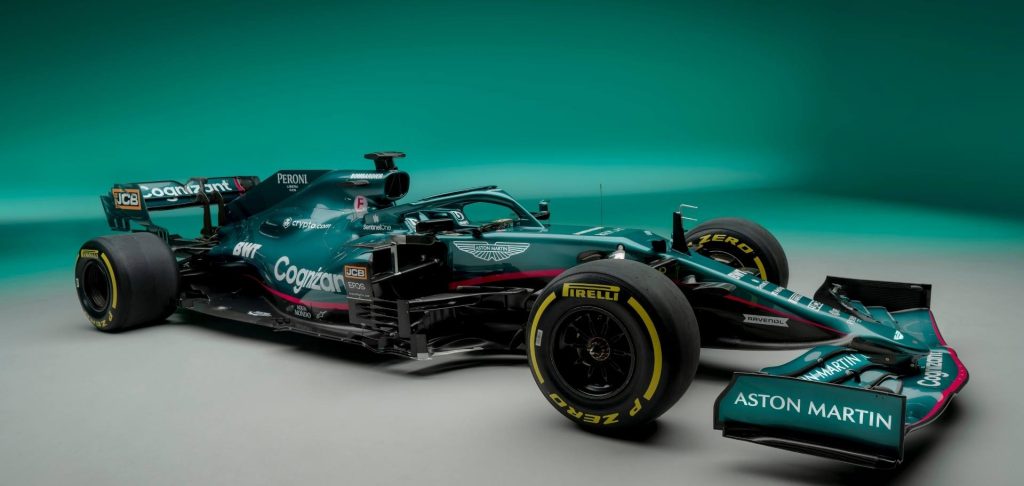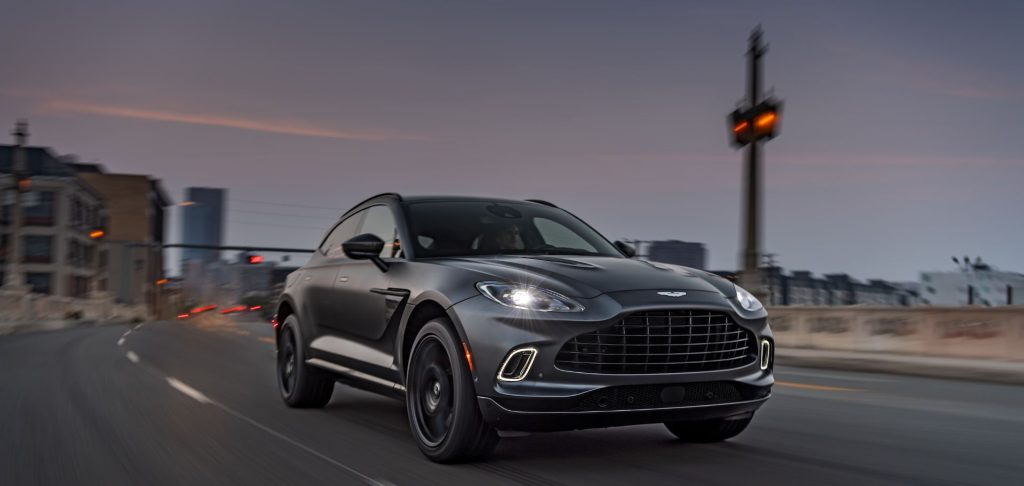Lawrence Stroll made his money from Tommy Hilfiger and eventually the IPO of Michael Kors. Now living the billionaire lifestyle, he is the Executive Chairman of Aston Martin Lagonda. Can his magic touch with luxury goods translate into success for the iconic car brand? Ghost Grad Kreeti Panday takes a seat on plush leather and straps in for the ride.
Most luxury car companies have flirted with bankruptcy at some point along the way. Aston Martin is a repeat offender, having survived near-bankruptcy eight times: in 1924, 1925, 1932, 1947, 1974, 1981, 2007 and 2020! The most recent scare was the catalyst for Canadian billionaire Lawrence Stroll’s involvement. He became the company’s Executive Chairman in April 2020, thereby securing a seat in Formula 1 for his son Lance if nothing else.

It always helps when daddy is a billionaire.
The latest news is that Aston Martin Lagonda Global Holdings Plc (the current corporate form of this iconic brand) has announced plans to raise equity funding from the Saudi Arabian sovereign wealth fund. The Public Investment Fund (PIF) will invest £78 million in the company, giving the fund a 16.7% stake as well as two board seats. This would make the PIF the group’s second-largest shareholder.
The cars may be gorgeous but the share price certainly isn’t, so the PIF will be hoping for a better outcome from here:

The PIF is headed by Crown Prince, Deputy Prime Minister and Chairman of the Council for Economic and Development Affairs, HRH Prince Mohammad bin Salman bin Abdulaziz Al Saud. The fund currently has stakes in American electric vehicle manufacturer Lucid, as well as British luxury automotive manufacturer McLaren. It also owns shares in Disney, Uber and Boeing and took over English football club, Newcastle United last year.
The football deal gave the PIF an 80% stake in the football club and resulted in protests outside the club’s stadium against human rights issues in Saudi Arabia.
Is this a good time to bring up the fact that Aston Martin unveiled its first SUV, the DBX, in 2019 with the aim of marketing it to female buyers? I wonder if we’ll start seeing less of those adverts. Controversial perhaps, but this is the world we live in.

Aston Martin is raising equity funding so that it can “meaningfully de-leverage the balance sheet” and support long-term growth. The goal is to hit 10,000 wholesale units by 2024/2025, which would generate around £2 billion in revenue and £500 million in adjusted EBITDA. The firm hopes to be free cash flow positive from 2024 onwards.
The structure of the capital raise is a placement of £78 million to the PIF and a subsequent underwritten rights issue of £575 million. Yew Tree Overseas Limited holds 22% of the company and will take up its full entitlement (£105.3 million). Mercedes-Benz AG holds 11.7% and will also fully support the rights issue to the tune of £56 million. Both parties will dilute due to the PIF placement.
It’s worth highlighting that J.P. Morgan Securities and Barclays Bank will underwrite the rights issue up to £318 million, which excludes the shares being taken up by the three anchor investors.
This comes after the group rejected a proposed investment worth up to £1.3 billion from the Atlas Consortium, comprising Chinese group Geely (which owns brands including Volvo, Proton and Lotus) and Italian investment group InvestIndustrial, a previous owner of Aston Martin who sold out before the pandemic.
Aston Martin didn’t mince its words regarding the rejection of the proposal:
The Board of Aston Martin believes that the Proposal markedly overestimated the Company’s new equity capital requirements, would have been heavily dilutive for existing shareholders, and comprised a number of execution obstacles. Furthermore, the structure of the Proposal and the nature of its delivery are such that the Board of Aston Martin considered this an attempt by the Atlas Consortium to acquire a controlling and prospectively majority ownership position without any premium paid to existing shareholders.
Aston Martin press release 15 July 2022
In contrast, the PIF deal introduces a new strategic shareholder and reaffirms the commitment from the other two major investors in the company.
The company intends to use up to half of the proceeds to pay off debt, which as at the end of March 2022 amounted to £957 million. The reduced interest costs will hopefully improve the company’s cash flow generation. The proceeds are also expected to improve the company’s liquidity in the midst of a strenuous operating environment, given current Covid-19 lockdowns in China, the Russia-Ukraine war and continued supply chain issues.
The group also intends to use this capital to develop next-generation front-engine sports cars and furthering the company’s offering of their mid-size SUV model, the DBX, as well as its high margin mid-engine vehicles, such as its special edition Valhalla. Aston Martin is also planning for the launch of various electric and hybrid sports cars and SUVs, aiming for the launch of their first plug-in hybrid vehicle in 2024, their first battery electric vehicle in 2025 and a fully electric portfolio of GT / Sports and SUVs by 2030.
The announcement also gave an update on recent trade. Order intake for the DBX is more than 40% higher year-on-year and the GT / Sports cars are full sold out into 2023. Wholesale volumes in H1 were down due to supply chain disruptions (2,676 units vs. 2,901 in the comparable period). Despite this, guidance has been reaffirmed for over 6,600 wholesale units for full year 2022, which will be a huge achievement from this midpoint. If achieved, adjusted EBITDA margin would increase by 350 – 450 basis points.
After announcing a nasty loss in the first quarter, the market will closely examine the interim results due on 29th July.
If anyone can fix Aston Martin, it just might be Lawrence Stroll and the leadership team he has put in place that includes Amedeo Felisa, an ex-Ferrari executive. Stroll’s experience with super-luxury companies comes through strongly in this statement:
“We started by fixing the core fundamentals of the Company, successfully de-stocking the dealer network to rebalance supply to demand, optimising inventory levels aligned for an ultra-luxury business, and now benefit from the strongest order book we have seen in many years. We also signed a strategic co-operation agreement with Mercedes-Benz and have developed a breathtaking pipeline of products, starting with the DBX707 and V12 Vantage, all of which are aligned with our 40%+ contribution margin targets – a significant increase from the past.”
Lawrence Stroll, Aston Martin press release 15 July 2022





Impressive breakdown of an arguably complex deal structure!
Enjoyed the article 👌🏽